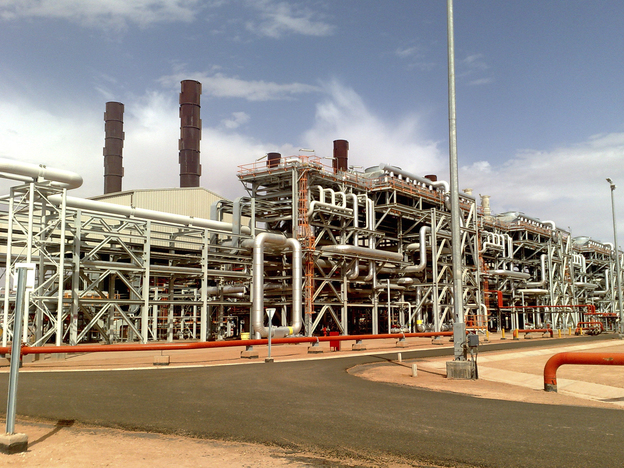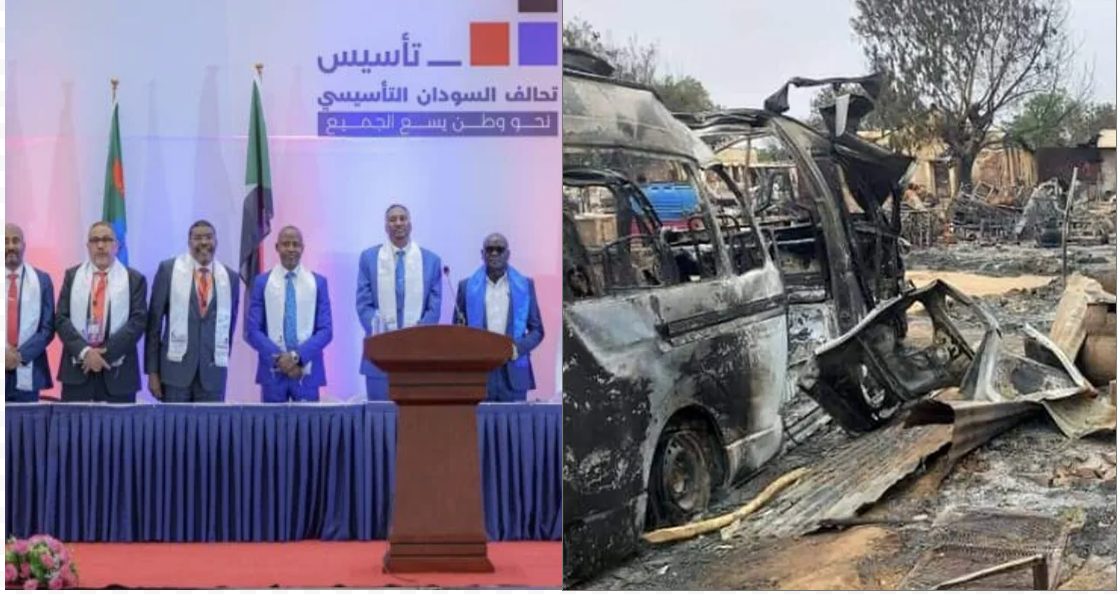
Algiers Reshapes Its Foreign Policy Following the In Amenas Attack
Algiers Reshapes Its Foreign Policy Following the In Amenas Attack
In a rather surprising shift from its historical position of non-interference in the domestic affairs of other countries and its earlier statement that it would not support any external military intervention in Mali, Algeria is backing the French intervention in Mali by allowing overflights of French military aircraft between Mali and France (Seneweb.com [Dakar], September 24, 2012; El Watan [Algiers], January 13; Tout Sur l’Algérie, January 14; January 16).
The shift is even more notable if viewed in the context of the psycho-political impact of having French troops in a country bordering Algeria, a nation formed during a long and bitter campaign against French colonial forces. However, the change is associated with a series of specific geopolitical circumstances and is not a structural departure from the Algerian principle of non-interference. Moreover, as the domestic security situation continues to be affected negatively by wider regional developments, Algeria is likely to intensify its focus on strengthening domestic security and border controls. In these circumstances, a direct military engagement of Algiers in the Malian conflict, although still possible, remains unlikely.
The guiding principles of Algerian foreign policy are well known: Algiers sticks strictly to the principle of non-interference in the internal affairs of other states, a choice closely associated with the anti-imperialist and anti-colonial stance that has characterized Algeria since its establishment as an independent state. Algeria has a rather paranoid approach to its national sovereignty; domestic security is not negotiable and Algerians do not accept any external interference in domestic issues. These patterns of political behavior have remained substantially unchanged over the past fifty years and were the result of the bloody anti-colonial war that is at the very root of independent Algeria and provides a formidable psychological and narrative burden that still defines the national elites’ choices and perceptions in almost all policy fields.
However, the developments of the past twelve months in Mali represent a challenge for Algeria and its historical approach of non-interference. In regard to Mali, this historical principle was strengthened by specific geo-political circumstances: i.e. the southward shift of al-Qaeda in the Islamic Maghreb (AQIM) and much of its establishment to northern Mali represented a victory for the Algerian policy aimed at eradicating this threat from its territory. Although AQIM was still able to carry out operations in Algeria, the group no longer presented the existential challenge to the state once posed by AQIM and its predecessors, the Groupe Islamique Armée (GIA) and the Groupe Salafiste pour la Prédication et le Combat (GSPC). As those elements of AQIM still based in northern Algeria (specifically in the Kabylia Mountains) saw their power and influence within the organization fade and their operative capacities significantly reduced, the Sahara/Sahel wing of AQIM came to be viewed in Algiers as a residual security concern.
The dramatic (if temporary) change in Algeria’s foreign policy highlights the pragmatism of the Algerian elites that remain committed to specific principles in their foreign policy but are nevertheless keen to modify their positions when dealing with specific developments occurring in the region.
Specifically, the Islamist takeover of the Malian town of Konna was about to change the overall strategic direction of the conflict in Mali. Having AQIM and its alleged splinter groups (more likely sub-groups of the movement operating under different labels) in the north of a dysfunctional but still unified and “formally sovereign” state like Mali was still acceptable. Algeria believed it had the means and the capacity to contain the threat of AQIM within its borders. Since 2008, AQIM has moved more “horizontally” in the wider Sahelian strip, focusing mainly on illegal businesses, than “vertically,” i.e. by trying to increase their operative profile in Algeria.
Now, however, the secession of Azawad (northern Mali) or the takeover of all Mali by Islamists are both considered red lines that cannot be passed as either result would be perceived in Algiers as representing a considerable threat to Algerian interests.
Secession could reignite aspirations for independence in some areas of Algeria, especially in the largely Berber Kabylia region. Despite being a rather strong – above all if compared to regional standards – and centralized state, there are still significant parts of Algeria in which local ethnic autonomy movements could explode suddenly, as occurred in the early 2000s. Moreover, an eventual Islamist-led state in either northern Mali or throughout the country is considered a major threat, as it could provide a territorial platform, psychological boost and ideological magnet for Algerian jihadists and regional volunteers to fight the elites of Algiers. It is these specific geopolitical circumstances that have led to the change in Algiers’ stance towards an external intervention in Mali.
Given its counter-terrorist and intelligence capacities, knowledge of the area, resources and geographical position, Algeria could represent a key component in conducting a successful military campaign in northern Mali. However, rising domestic threats within Algeria, the need to upgrade border security and the general reluctance of the Algerian military to enter an extraterritorial campaign will likely prevent Algiers from seeking a direct military engagement in Mali.
Specifically, one of the founding principles of the Algerian Armée nationale populaire (ANP) is to avoid foreign interventions even when such interventions are authorized by the UN or the African Union (Jeune Afrique, October 30, 2012). Since independence, the Algerian army has engaged in more domestic conflicts than external wars, with the last “official” engagement beyond its borders directed against Morocco in 1963, though it also backed Sahrawi guerrillas against Morocco in the 1970s and has officially been in a state of war with Israel since 1948. As shown by the temporary acceptance of the French intervention in Mali, Algeria may change its stance in certain specific circumstances and decide to intervene in Mali. According to Algerian communications minister Muhammad Said, Algeria’s role in the Malian conflict following the terrorist strike at In Amenas will be determined “in accordance with the supreme interests of Algeria… In this kind of situation, national interest takes precedence and it is the country’s supreme authorities who will judge whether to authorize or not authorize such action” (AFP, January 20).
The attack on the gas facility at In Amenas highlighted two major problems that will rise to the top of the Algerian government’s policy agenda over the next few weeks:
- Although Algeria is the strongest of the states of the Maghreb/Sahel region, the length of its borders and the turbulence of its neighbors (Libya and Tunisia in the east, Mali to the south) make it difficult to fully control all of its frontiers.
- The attack at In Aménas will represent a psychological deterrent to some foreign oil companies to upgrade facilities or invest in Algeria for some time. Therefore, the need to strengthen domestic security and border controls will become a security priority, making a direct military engagement in Mali more difficult and problematic.
As long as AQIM and its affiliates were operating “horizontally” in the Sahelian strip, with their bases in northern Mali, that situation remained acceptable to Algiers because it was not perceived as a structural threat to the state. However, the In Aménas attack will likely push Algeria to focus even more on the security of its borders and its domestic environment. Although the military involvement of Algeria in the Malian conflict cannot be completely ruled out, above all if the French intervention should prove to be less effective than thought, direct engagement still remains extremely improbable.
Dario Cristiani is a PhD Candidate in Middle East and Mediterranean Studies at King’s College, London. Previously, he has been a teaching fellow in Political Science and Comparative Politics at the University of Naples “L’Orientale” and a political analyst with the Power and Interest News Report.


